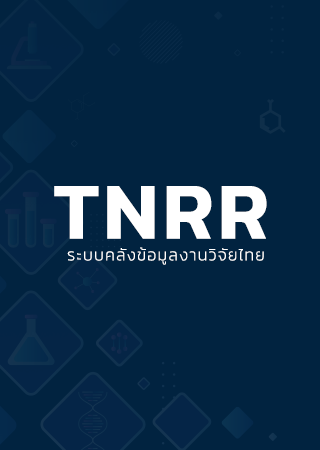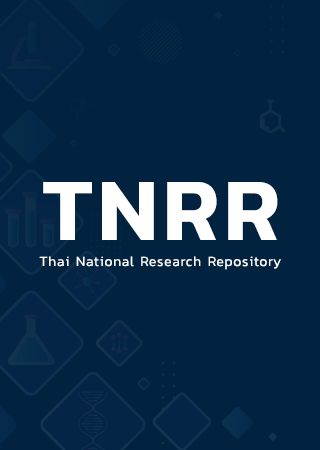Description
บทคัดย่อชื่อโครงการ: การพัฒนาชุดแนวทางการจัดการปัญหาสุขภาพจิตแบบปกติวิถีใหม่ ของบุคลากรทางการแพทย์ในระหว่างเกิดโรคติดเชื้ออุบัติใหม่: กรณีศึกษาจากการระบาดของโควิด 19ชื่อนักวิจัย: ดร. กาญจนี พันธุ์ไพโรจน์ คณะพยาบาลศาสตร์ มหาวิทยาลัยธรรมศาสตร์ ผศ. ดร. เกสร มุ้ยจีน คณะพยาบาลศาสตร์ มหาวิทยาลัยธรรมศาสตร์ ดร. สุทธิศานติ์ ชุ่มวิจารณ์ระยะเวลาโครงการ: มีนาคม 2564 – พฤษภาคม 2565ช่วงเวลาที่ผ่านมาพบว่าการระบาดของโควิด 19 ส่งผลต่อสุขภาพจิตของบุคลากรทางการแพทย์ในการรับมือกับโรคระบาดโดยตรง การหาปัจจัยที่ส่งผลต่อสุขภาพจิตของบุคลากรทางการแพทย์ในประเทศไทยทำให้เกิดความชัดเจนในการจัดลำดับความสำคัญของปัจจัยต่าง ๆ ที่ส่งผลต่อสุขภาพจิตของบุคลากรทางการแพทย์ นำไปสู่การสรุปหาแนวทางในการวางแผนเชิงนโยบายในการรับมือกับโรคโควิด 19 ที่อาจเกิดการระบาดระรอกใหม่ หรือการรับมือกับโรคอุบัติใหม่ที่อาจเกิดขึ้นอีกในอนาคตได้ดียิ่งขึ้น โดยมีวัตถุประสงค์ของการวิจัย ดังนี้ 1. เพื่อสังเคราะห์อิทธิพลของปัจจัยที่ส่งผลต่อสุขภาพจิตบุคลากรทางการแพทย์กับบุคคลทั่วไปในช่วงการระบาดของไวรัสโควิด 19 2. เพื่อพัฒนาแบบวัดสภาวะสุขภาพจิตและศึกษาอิทธิพลของปัจจัยที่ส่งผลต่อสุขภาพจิต ของบุคลากรทางการแพทย์ในช่วงการระบาดของไวรัสโควิด 19 3. เพื่อพัฒนาชุดแนวทางการจัดการปัญหาสุขภาพจิตแบบปกติวิถีใหม่ ของบุคลากรทางการแพทย์ตามลำดับความสำคัญของปัจจัยที่เกี่ยวข้องที่จำเป็นต้องได้รับความช่วยเหลืออย่างเร่งด่วนเพื่อเตรียมพร้อมรับมือกับการระบาดของโรคติดต่อที่อุบัติใหม่หรือการระบาดซ้ำของไวรัสโควิด 19 ที่อาจเกิดขึ้นในอนาคตสรุปผลการวิจัย แบ่งเป็น 4 ตอน ประกอบด้วย ตอนที่ 1 การสังเคราะห์งานวิจัย พบว่าเส้นทางอิทธิพลในลักษณะเดียวกันเมื่อพิจารณาเฉพาะอิทธิพลที่มีนัยสำคัญ พบว่าความเครียดมีอิทธิพลทางตรงต่อภาวะซึมเศร้าและความเหนื่อยล้า ส่วนความวิตกกังวลมีอิทธิพลต่อภาวะซึมเศร้าเท่านั้น และพบอีกว่าทั้งความเครียดและความวิตกกังวลมีอิทธิพลโดยรวมไปยังความเหนื่อยล้าอย่างมีนัยสำคัญ โดยไม่พบอิทธิพลทางอ้อมอย่างมีนัยสำคัญ จึงสรุปได้ว่า ผู้ที่มีอาการเหนื่อยล้ามักมีอาการเครียดหรือวิตกกังวลก่อน แต่สำหรับผู้ที่มีอาการเครียดอาจจะแสดงออกถึงภาวะซึมเศร้าหรือไม่ก็ได้ ในขณะที่ผู้ที่มีอาการวิตกกังวลมักจะเกิดภาวะซึมเศร้าตามมาแล้วจึงเกิดอาการเหนื่อยล้า ตอนที่ 2 การสำรวจบุคลากรทางการแพทย์ 5 วิชาชีพ ประกอบด้วย แพทย์ พยาบาล ทันตแพทย์ เภสัชกร และเทคนิคการแพทย์ ที่ปฏิบัติหน้าที่ในระหว่างการแพร่ระบาดของไวร้สโควิด 19 ช่วงปี พ.ศ. 2563 - 2564 จำนวน 659 คน โดยข้อมูลส่วนใหญ่มาจากกรุงเทพมหานครจำนวน 176 คน (ร้อยละ 26.71) รองลงมาคือ ภาคกลาง 170 คน (ร้อยละ 25.80) และ ภาคตะวันออกเฉียงเหนือ 54 คน (ร้อยละ 8.19) อิทธิพลของตัวแปรอาการเหนื่อยล้ามักมีภาวะซึมเศร้าก่อน ซึ่งอาจสังเกตจากอาการของภาวะซึมเศร้าเพื่อหาทางยับยั้งความเหนื่อยล้าที่จะเกิดขึ้นตามมาในที่สุด โดยการเหนื่อยล้าของบุคลกรทำให้เกิดผลเสียต่าง ๆ เช่น ประสิทธิภาพของการทำงานลดลง และมีความเสี่ยงต่อการออกจากงานเพิ่มขึ้น นอกจากนี้อิทธิพลจากความเครียดส่งผลไปยังภาวะซึมเศร้าและมีอิทธิพลรวมต่อความเหนื่อยล้าสูงกว่าความวิตกกังวล ดังนั้นการแก้ไขปัญหาสุขภาพจิตในระดับที่เกิดภาวะซึมเศร้า รวมถึงความเหนื่อยล้าจึงควรให้ความสำคัญต่อการแก้ไขความเครียดก่อนเนื่องจากมีอิทธิพลสูง รองลงมาคือความวิตกกังวลแม้ว่าจะมีระดับอิทธิพลน้อยกว่าแต่มีนัยสำคัญต่อภาวะซึมเศร้าและความเหนื่อยล้าเช่นกันตอนที่ 3 การประเมินความต้องการจำเป็น พบว่าประเด็นที่ 1 เป็นด้านร่างกาย การจัดสวัสดิการด้านความป้องกันการติดเชื้อโควิด 19 และประเด็นที่ 2 แหล่งช่วยเหลือทางจิตใจ เป็นสื่อที่สามารถเข้าถึงได้ การให้คำปรึกษาเพื่อการจัดการกับความเครียด ความกังวล ความเศร้า และความเหนื่อยหน่ายท้อแท้ใจ และตอนที่ 4 การจัดทำชุดแนวทางการจัดการปัญหาสุขภาพจิตแบบปกติวิถีใหม่ โดยจัดทำเป็น Blueprint มีรูปแบบบำบัดรายบุคคล และดำเนินการตรวจสอบความเหมาะสมโดยนำไปทดสอบกับบุคลากรทางการแพทย์ 5 วิชาชีพ จาก 6 ภูมิภาค จำนวนทั้งสิ้น 145 คน ผลการประเมินความเหมาะสม 4 ด้าน คือ ด้านการดำเนินเรื่อง (M = 4.20, SD = 0.66) ด้านเนื้อหากิจกรรม (M = 4.20, SD = 0.74) ด้านการใช้งานและสามารถนำไปใช้จริง (M = 4.22, SD = 0.66) และด้านความเหมาะสมสวยงาม (M = 4.32, SD = 0.66) พบว่า ค่าเฉลี่ยทุกด้านสูงกว่า 4.00 กล่าวได้ว่ามีความเหมาะสมระดับมาก คำสำคัญ: การจัดการปัญหาสุขภาพจิต; รูปแบบปกติวิถีใหม่; บุคลากรทางการแพทย์; โรคติดเชื้ออุบัติใหม่; การระบาดของโควิด 19<br><br>ABSTRACTTitle: Development of the Guidelines’ Package for Management of Mental Health Problems in the New Normal of Medical Staff during Emerging Infectious Diseases: A Case Study after Covid-19 Outbreak Researchers: Dr. Kanjanee Phanphairoj Faculty of Nursing, Thammasat University Asst. Prof. Dr. Kasorn Muijeen Faculty of Nursing, Thammasat University Dr. Sutthisan ChumvijanProject duration: March 2021 – May 2022Recently, it has been found that the COVID-19 pandemic directly affects the mental health of healthcare workers, who are frontline workers. It is essential to identify and prioritize the factors affecting the mental health of these workers in Thailand, as it contributes to policy planning and preparation for a new outbreak of COVID-19 or other emerging infectious diseases in the future. The objectives of the present research were as follows: 1. to synthesize the factors affecting the mental health of health workers and general populations during the COVID-19 pandemic; 2. to develop a mental health assessment tool based on the factors affecting the mental health of healthcare workers during the COVID-19 pandemic; and 3. to create a set of mental health management guidelines for healthcare workers in the new normal situation based on prioritized factors in order to prepare for future outbreaks of COVID-19 and other newly emerging infectious diseases. The research results were divided into four parts. First, the synthesis of previous research indicated the similarity of influencing paths. When considering only significant influences, it was found that stress directly influences depression and fatigue, while anxiety only influences depression. The results also showed that both stress and anxiety have a significant overall influence on fatigue, whereas no significant indirect influence was found. Therefore, it can be concluded that people with fatigue often experience stress or anxiety first. However, people that are stressed may or may not experience depression. Meanwhile, people with anxiety tend to develop depression and then experience fatigue. Second, a survey was conducted to collect data from 659 healthcare workers, including doctors, nurses, dentists, pharmacists, and medical technicians, who performed their duties during the COVID-19 pandemic between 2020 and 2021. The majority of the participants lived in Bangkok (n=176, 26.71 percent), followed by the central region of Thailand (n=170, 25.80 percent), and the northeastern region of Thailand (n=54, 8.19 percent). The results showed that depression was an antecedent factor of fatigue, and that symptoms of depression should be observed in order to find a way to prevent fatigue. Healthcare workers’ fatigue causes negative consequences, such as reduced productivity and an increased risk of resignation. In addition, stress was found to affect depression and to have a higher overall influence on fatigue than anxiety. Therefore, in order to solve mental health problems associated with depression and fatigue, stress must be tackled first due to its high influence. Then anxiety should be properly dealt with because, although it has a less degree of influence, it has a significant relationship with depression and fatigue. Third, the assessment of healthcare workers’ needs indicated that they mostly need physical support in terms of welfare for the prevention of coronavirus infection, followed by psychological support, including accessible media and consultation for dealing with stress, anxiety, depression, and burnout. Fourth, guidelines for mental health management in the new normal situation were developed in the form of a blueprint to deal with the mental health of healthcare workers at the individual level. The suitability of the developed guidelines was tested with 145 healthcare workers from five professional fields in six regions in Thailand. The results were evaluated according to four aspects: 1) content organization (M = 4.20, SD = 0.66); 2) activity (M = 4.20, SD = 0.74); 3) functionality and utilization (M = 4.22, SD = 0.66); and 4) aesthetic (M = 4.32, SD = 0.66). The mean was higher than 4.00 in all aspects, suggesting a high suitability level.Keywords: mental health management, new normal, healthcare workers, newly emerging infectious diseases, COVID-19 outbreak
Date of Publication :
02/2023
Publisher :
สำนักงานการวิจัยแห่งชาติ (วช.)
Category :
รายงานการวิจัย
Total page :
77012 pages
People Who Read This Also Read


